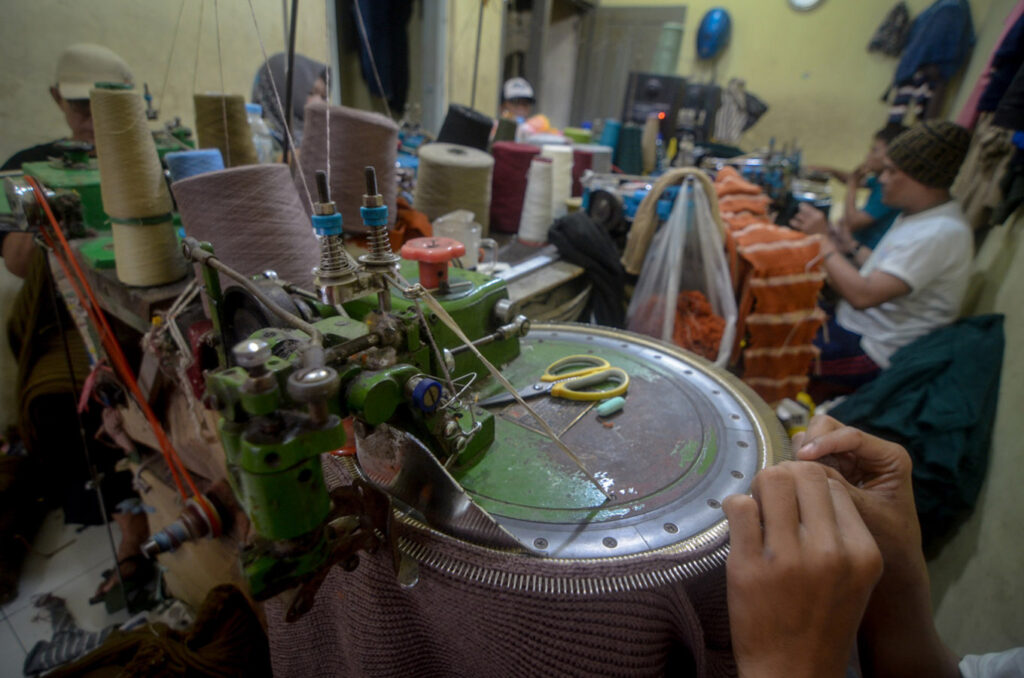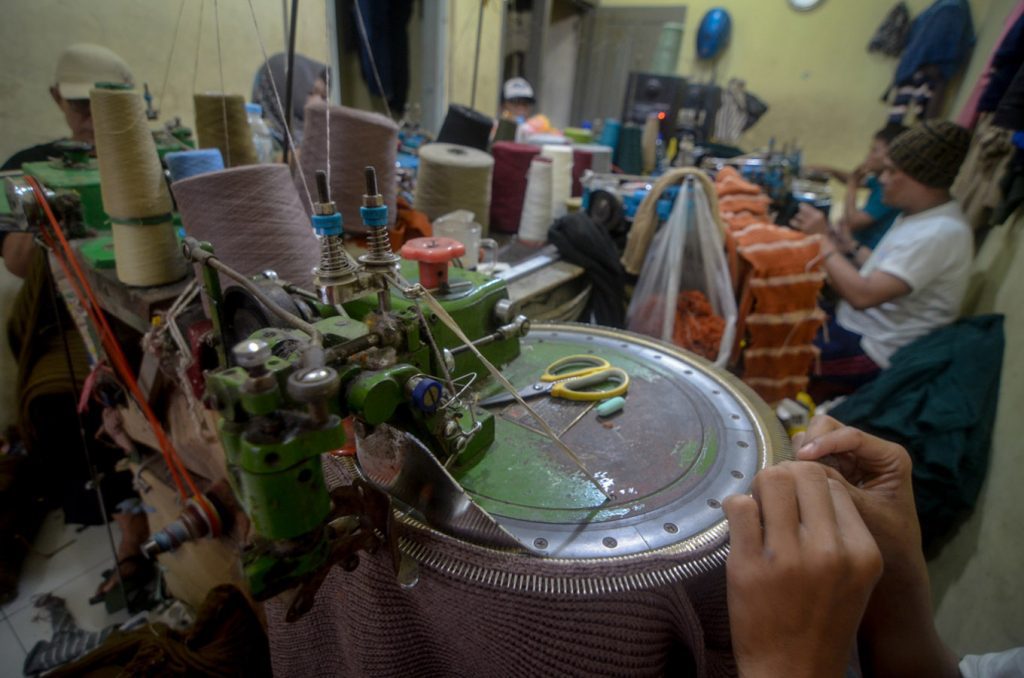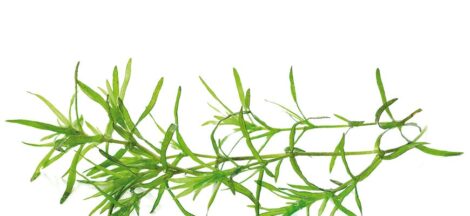Indonesian textile exports fall as Turkey imposes import duties. Indonesia is seeing a steep decline in textile exports to Turkey—a major market for textile products—blamed on additional duties and the coronavirus pandemic’s effect on global trade.

In the January–August period, Indonesian textile exports to Turkey were down nearly 50 percent year-on-year (yoy) at US$168.9 million, said Marthin Kalit, secretary of the foreign trade director general at the Indonesian Trade Ministry, quoting data from Statistics Indonesia (BPS).
“This should be a concern for us, since Turkey is our sixth-biggest export destination [for textile products], after the United States, Japan, China, South Korea and Germany,” Marthin said in a virtual discussion on Tuesday.
Indonesia’s overall textile exports reached only $7.03 billion over the same period, marking an annual decline of 19.92 percent.
The decline in Indonesia’s textile exports to Turkey come at a time when both countries are dealing with the COVID-19 pandemic. The World Trade Organization expects global trade to decline by between 13 and 32 percent this year as a result of the pandemic.
To keep its domestic industries afloat amid the economic downturn, Turkey introduced in April additional duties of 4 to 50 percent on textile products imported from countries with which it has no trade agreements. The duties are to remain in place until the end of the year.
Since Indonesia has no trade agreement with Turkey, the duties are imposed on Indonesian textile products.
Indonesia is still negotiating a comprehensive economic partnership agreement with Turkey, called the IT-CEPA. The two countries had been scheduled to sit down for a fifth round of negotiations in April.
The Indonesian government hopes the trade deal can remove additional tariffs imposed by Turkey on Indonesian products so it can boost its exports, Marthin said.
“Turkey’s market is quite challenging for Indonesian textile exporters. However, it actually has quite a big potential for our textile industry,” said Marthin, referring in part to the country’s status as a hub to connect with Middle Eastern, European and North African markets.
For textile manufacturer PT Sri Rejeki Isman (Sritex), Turkey still offers a promising market, given that Indonesian exports of artificial fibers and yarn still grew by 3.55 percent in the past five years regardless of trade barriers, said the company’s director Abhay Agarwal.
“This is because there are [other] factors, such as Indonesian fiber producers and spinners being trusted suppliers for consistent fiber quality, and because Turkey’s domestic producers cannot fully meet the demand from the countries own industries,” said Abhay.
Indonesia’s overall trade with Turkey started seeing a downward trend between 2018 and 2019, when it fell by nearly 17 percent to $1.49 billion, according to data from Eric Nababan, the Indonesian trade attaché in Turkey.
“In 2020, the value of Indonesia-Turkish trade is estimated to fall further, especially with the introduction of the Turkish government’s policy to restrict imports,” said Eric.
Turkey had imposed tariffs on almost all textile products registered under chapters 50 to 60 in the harmonized system of tariff nomenclature, called HS code, he added.
The negotiation of the IT-CEPA was also facing a hurdle, as Turkey was more focused on securing a trade deal with the United Kingdom, Eric said. Moreover, Indonesia did not make it to Turkey’s major trading partners.
“If possible, one strategy we can pursue to raise the bargaining position of Indonesian products is to impose barriers especially on Turkey’s main exports,” added Eric. Indonesian textile exports fall as Turkey imposes import duties (Dzulfiqar Fathur Rahman, The Jakarta Post)






 An AI Bot is Making Banksy-Inspired Art
An AI Bot is Making Banksy-Inspired Art 